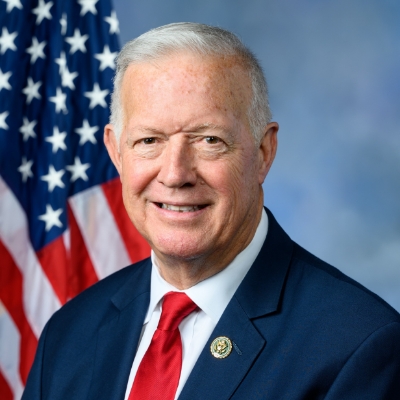- Home
- About
- Contact
- Services
- Art Competition
- Community Project Requests
- Congressional Commendations
- Flags
- Assistance with a Federal Agency
- Internships
- Military Academy Nominations
- Passports
- Presidential Greetings
- Tours and Tickets
- The Congressional Award
- Grants
- Water Resources Development Act 2026
- Additional Services and Resources
- Media
- Legislation
- Issues
- Resources
 U.S. REPRESENTATIVE
Randy Weber
Proudly Serving Texas' 14th District
U.S. REPRESENTATIVE
Randy Weber
Proudly Serving Texas' 14th District
Articles
Trump was right to leave flawed climate pact
Washington, DC,
June 12, 2017
This article was published in The Beaumont Enterprise on Sunday, June 11, 2017.
With the amount of attention we give to news cycles and social media news feeds, chances are you have seen the words "Paris Climate Accord" or some variation plenty of times in the last week. In light of the eruption of articles, we must remember, a headline and the first paragraph of an article are not enough to fully explain the implications both of the Accord and of the president's decision to withdraw from it.
This article was published in the Beaumont Enterprise on Sunday, June 11, 2017. With the amount of attention we give to news cycles and social media news feeds, chances are you have seen the words "Paris Climate Accord" or some variation plenty of times in the last week. In light of the eruption of articles, we must remember, a headline and the first paragraph of an article are not enough to fully explain the implications both of the Accord and of the president's decision to withdraw from it. The Paris Climate Accord was adopted in 2015. The Accord's objective is to "achieve a legally binding and universal agreement on ... keeping global warming below 2 degree Celsius." To achieve this goal, countries that signed the Accord submitted their Intended Nationally Determined Contribution (INDC) outlining their commitment to reduce greenhouse gases. Though the overall goal to decrease carbon dioxide emissions is a nice sentiment, the reduction commitments made by countries are far from realistic. For example, the United States committed to reducing carbon dioxide levels 26-28 percent by 2025. Achieving this, quite frankly, is a pipe dream. To put this in perspective, if you combined all climate regulations proposed by the previous administration, which would cost the U.S. almost $200 billion annually, we would still only achieve around 45 percent of our commitment. In following through with the Paris Climate Accord, we would have cost our economy trillions of dollars while simultaneously killing jobs and stifling economic growth. The effect on jobs would be far reaching and affect people from all walks of life - especially low-income and working class families. Various industries would be set up for failure, and people would suffer. That outcome does not solve any problems; it only creates more. Proponents of the Accord praise it for its promise of decreased global temperatures, but facts show the temperature decrease is insignificant in the grand scheme of things - 0.17 of a degree Celsius worldwide by 2100, optimistically. The U.S. contribution, after spending trillions of dollars, will reduce temperatures by only 0.015 of a degree Celsius! Climate policy that does not help the climate is not good policy. Opponents, myself included, argue the funds being funneled into this farce would be better spent investing in innovation and the private sector. Climate models are far too uncertain to merit the investment of trillions of federal dollars when the impact is at best, decidedly unknown, or at worst, negligible. Faulty formula Aside from being void of a return on investment, the Accord is riddled with double standards. Commitments made by developing nations amount to little more than business as usual. China, for example, promised to cut greenhouse gas emissions, but not until 2030, when they are expected to peak anyway. Other countries' participation is contingent on receiving monetary aid. For example, India has suggested it will require $2.5 trillion from the U.S. and other developed nations to pursue its INDC, which does not even commit to emissions reductions. We are all capable of working within our respective borders to reduce greenhouse gas emissions without wasting resources. Proponents of the Accord rush to proclaim it is our only option to protect the environment. Opponents beg to differ. Facts show the U.S. has reduced carbon dioxide levels for decades and that our reduction has been significant. This was done through private sector innovation and smart investments in basic research and development - not though massive increases in federal regulations. We do not need an agreement to tell us the environment should be protected. Withdrawing from the Accord is not about a desire to send the world into environmental ruin - that benefits no one. Rather, withdrawing from this Accord is about investing in people and believing the key to conservation is within innovation. Innovation should be fostered, and history has repeatedly shown us regulation only stifles progress. Americans are innovative. I believe we will continue to lead the world in technological advances in the energy industry that both foster economic growth and reduce emissions. In order to do so, the government must take a step back - from regulations and from non-binding Accords - and let Americans work, create and progress without the suffocating hand of interference. |
